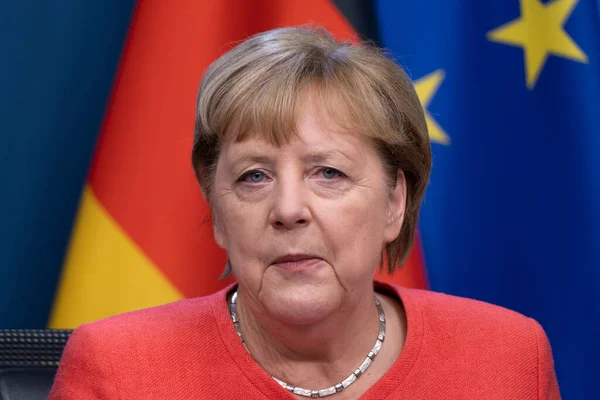Angela Merkel’s sixteen years as Germany’s chancellor show the capability of pragmatic leadership throughout a period of social and economic change throughout Europe. Her steady hand and methodical decision making helped her shepherd Germany and hence Europe through several of the toughest crises of the 21st century. From the Eurozone crisis to the refugee crisis and populism, Merkel’s leadership proved capable to shore up a Europe polarised by becoming the de facto leader of the continent.
Merkel put on a pragmatic approach to leadership because she was a scientist. Educated as a physicist, Merkel embraced procedure and evidence in government, rejecting ideology in favour of practical solutions. This rational, calculated approach proved particularly helpful in the Eurozone debt crisis which started in 2009. As nations including Greece, Spain and Italy entered a financial meltdown, Merkel along with European institutions helped keep the European Union (EU) together. While criticized for imposing austerity on already troubled countries, her demands on fiscal discipline secured bailout packages which stabilized the Eurozone. Merkel showed that she could navigate complicated, conflicting problems with a clear conscience while avoiding populist demands.
The refugee crisis of 2015 also marked another Merkel – defining moment. Millions fleeing war-torn nations like Iraq and Syria, Merkel opened Germany’s borders to over a million refugees. Her statement, Wir schaffen das (“We can do it”), appropriately mirrored her view that Europe had a moral obligation to assist the needy. This particular decision provoked polarization in Germany and throughout Europe and created right wing populist movements profiting from fears of emigration and cultural change. Nevertheless, Merkel mirrored her pragmatic yet principled leadership style – she recognized the political risks but did what she believed was appropriate for humanitarian reasons and also for Europe’s future unity. Ultimately, Merkel managed the refugee crisis in a stabilizing manner, as Germany incorporated a lot of the immigrants into its economic system and culture along with other European nations followed suit – though even more cautiously.
Merkel also had developed excellent relations with allies and enemies that helped her navigate Europe’s divisions. Regardless if she was tackling Russian aggression in Ukraine, managing Germany’s interactions with the U.S. under Trump or negotiating in the EU, Merkel’s diplomacy was patient and pragmatic. She avoided sharp rhetoric and ideological clashes and more frequently touted incremental progress over dramatic shifts. Dieser diplomatic restraint allowed Merkel to maintain Germany a central stabilizing force in Europe as the political landscape changed throughout the continent.
Merkel was regarded as flexible – but in the position to look at the bigger picture. Her flexibility in face of the rise of populism across Europe showed her flexibility. Merkel was dismissive of populist challenges at first but her later policies mirrored a more restrained inclusive approach. She shifted her party’s view on issues like security and immigration to reflect voter concerns without compromising her core beliefs. This particular adaptability kept the far right Alternative for Germany (AfD) party from gaining momentum and Merkel maintaining the support of centrist and average voters.
Merkel made Germany a solid anchor in a splintered Europe. Her focus on consensus building and incremental progress kept the EU united throughout crises which range from Brexit to authoritarianism in Poland and Hungary. Merkel’s pragmatic leadership style, often described as “Kanzlerin der Krisen” (Chancellor of Crises), allowed Her to navigate these difficulties with no further escalation of EU divisions.
Lastly, Angela Merkel’s pragmatic leadership brought stability to a divisive Europe by concentrating on practical solutions, maintaining diplomatic relationships and navigating Germany and the EU through crises methodically and calmly. Her legacy is steady governance and European unity in an era of political flux and uncertainty. While Europe faces fresh difficulties, Merkel’s leadership style might offer a model for balancing national interests with the bigger goal of keeping peace in addition to cooperation in a more divided world.

